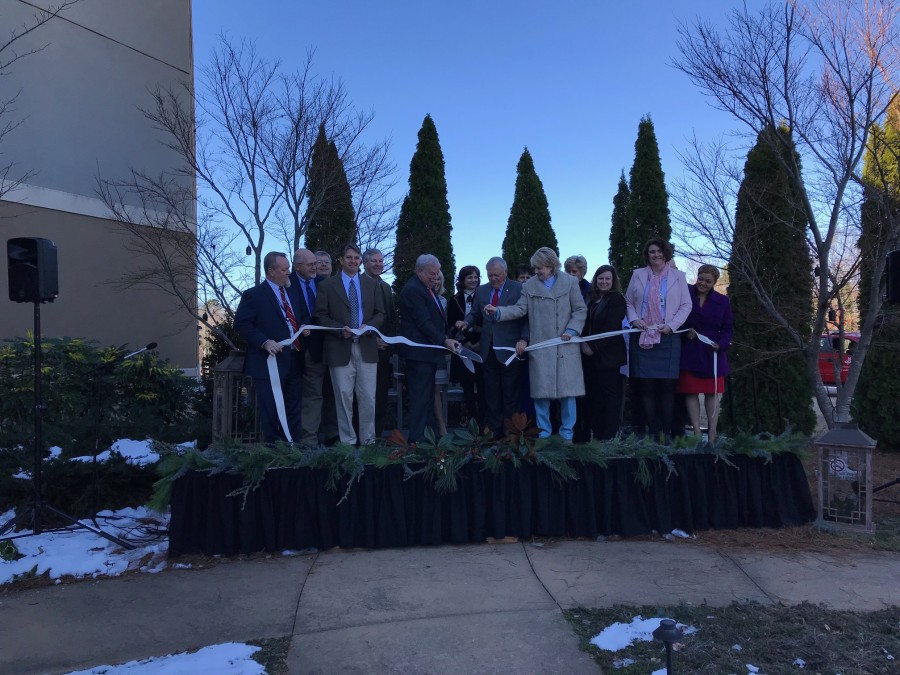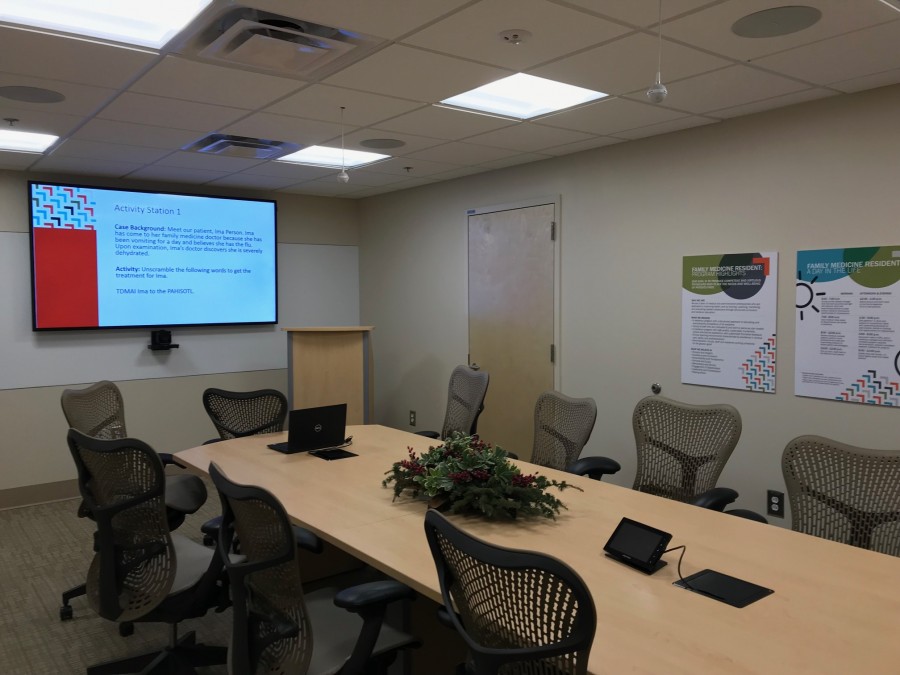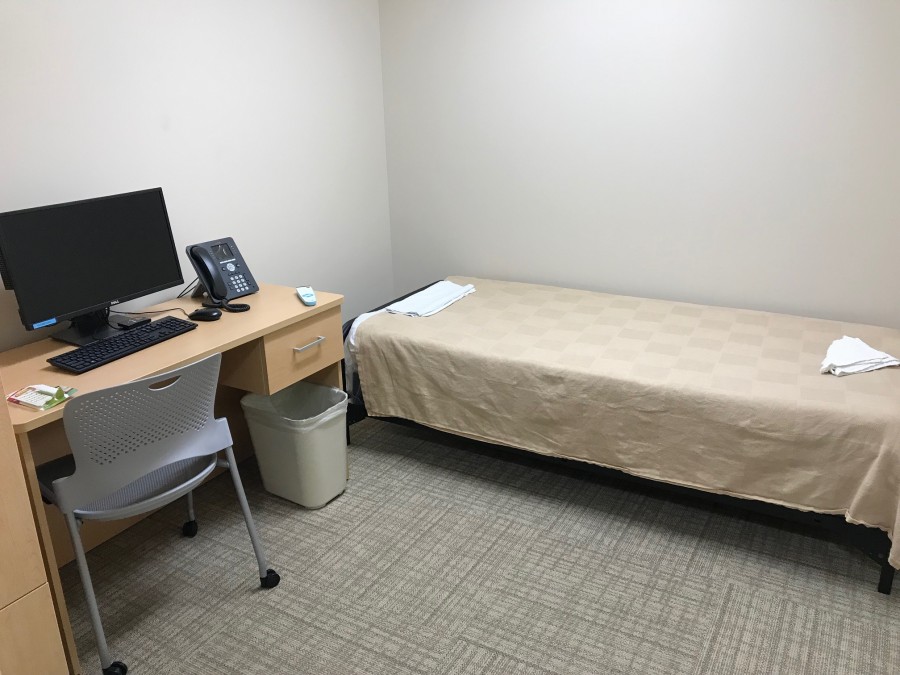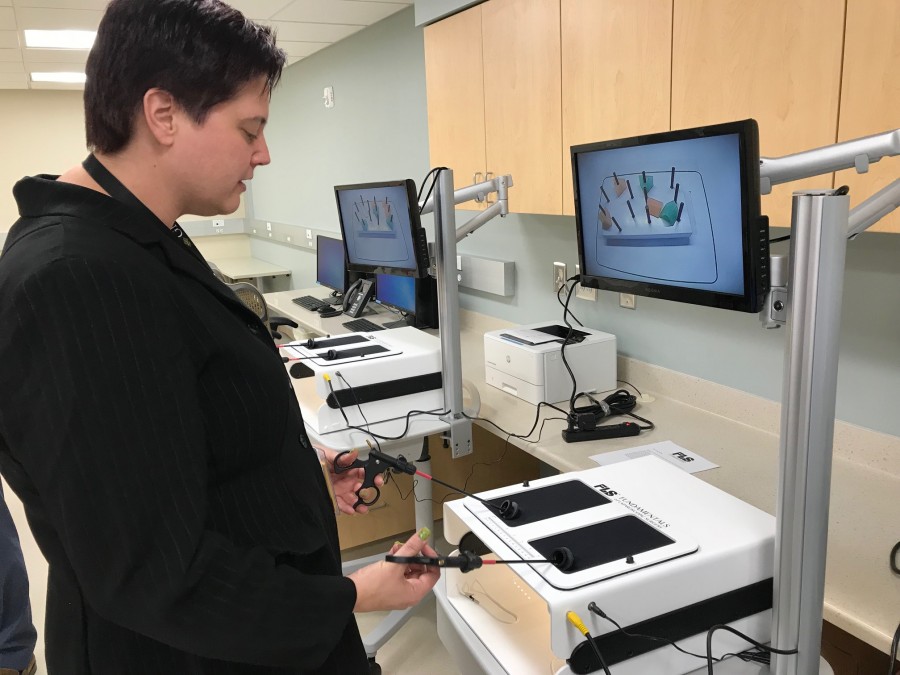New doctors planning to spend their residency at Northeast Georgia Medical Center will now have a place to practice, study and even sleep while working at the hospital.
Officials with the hospital, along with Governor Nathan Deal, cut the ribbon during the lunch hour Wednesday on the new residency hall, designed for the graduate medical education (GME) program that will see it's first class in 2019.
"Several years ago I told the General Assembly I wanted - in the not so distant future - that I wanted 400 residency slots in the state of Georgia. You (the hospital) are a good part of fulfilling that goal," said Governor Deal.
As many as 170 residents will be supported in the new program and fill the new residency hall in less than two years.
The hall features four classrooms, a simulation lab and a lounge that has computers, tables and chairs, and even a dozen bunks that can be used for private studying or some much-needed shut eye.
"Part of being a resident is a lot of practice, so they're going to have 24 hour access to the sim lab to come in and practice knot-tying skills, practice their FLS Laparoscopic skills, basically just practice, practice, practice," said Kylene Smartis, the program coordinator for the General Surgery Residency Program.
Residency students can practice techniques and using tools in the simulation lab, using specialty training tools to practice surgical silk suture techniques or experience a variety of medical situations with one of the lab's Sim Man mannequins.
"We have a trauma man that spews blood everywhere, which is very shocking when it first happens. For a resident to be able to experience that in a simulation environment rather than on the floor builds their confidence and helps them with their skills," said Smartis.
The lounge, with computers and places to eat, study and take a nap, is a new requirement for GME programs.
After graduating and becoming a doctor, graduates typically take part in a residency program that focuses on their specialty, like surgery, OB/GYN or psychiatry. Having a GME means NGMC would be more accessible to graduates, especially from our area.
"Many young people who decide they want to be physicians, we've educated them from sometimes Pre-K all the way through high schools, all the way through college, all the way through medical school and then, when they're looking for an opportunity for a residency in the area they wish to be a specialist in, what do they do?" said Deal. "They have to go to a hospital that provides those kind of residency slots. And when they leave to go to other states that provide those opportunities, the statistics are anywhere from 20 to 25 percent of them never come back."
But, Deal said they wanted those doctors and future doctors to stay here in the state.
The health system announced the residency program in November 2016 and will offer six specialty residency programs by 2024. The program and its up front costs were paid in part by $6.1 million in matching funds through the Board of Regents of the University System of Georgia, offsetting resources required prior to any reimbursement through the Centers for Medicare and Medicaid Services.




http://accesswdun.com/article/2017/12/616115/residency-hall-ready-for-2019-program-at-northeast-georgia-medical-center
